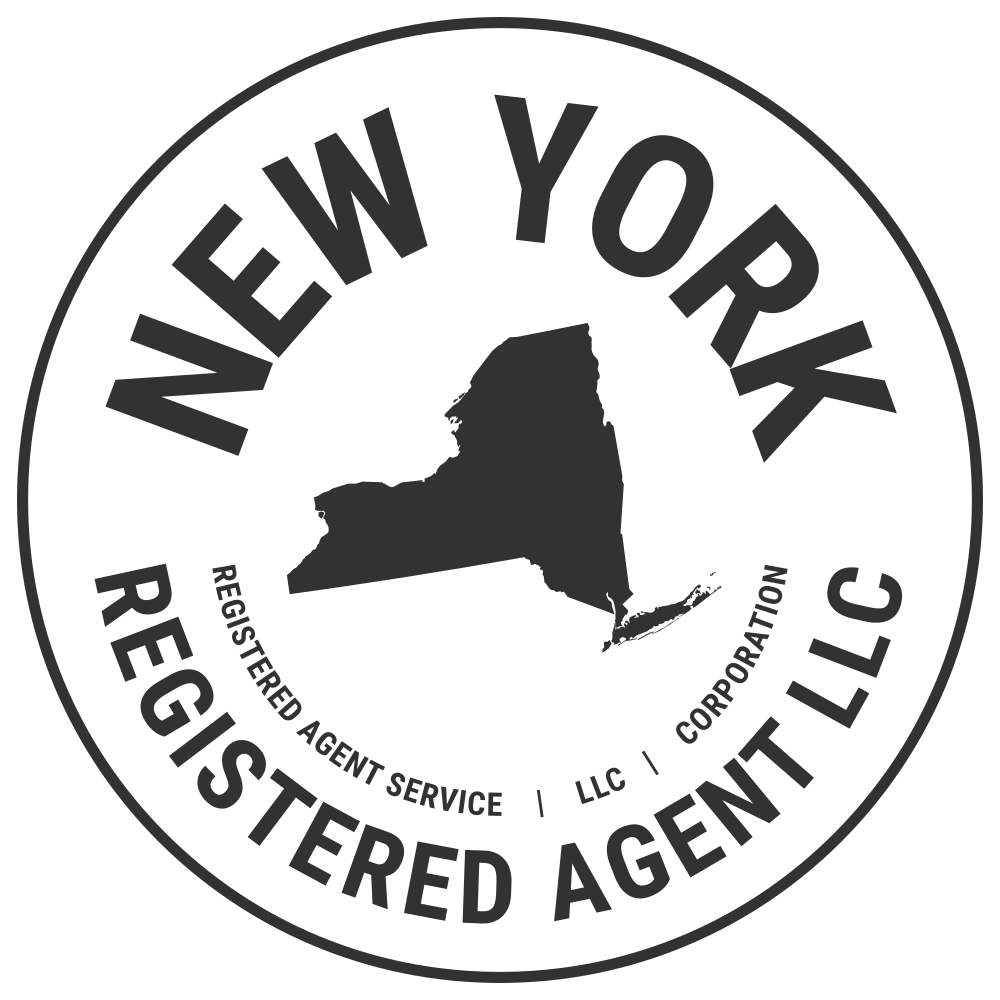NY LLC for Airbnb & Vacation Rentals
Our Guide
Of course, starting an Airbnb or similar vacation rental business involves more than hatching a plan to protect your personal finances. In this guide, we’ll cover:
 |
Benefits of an LLC for Your NY Rental Property
Using an LLC for your rental property not only protects your personal assets, it comes with tax advantages. Here are three major benefits to forming an LLC to be aware of:
Liability Protection
This is crucial when it comes to rental spaces. Sure, not everyone in New York breaks windows and clogs drains, but accidents happen. Consider this:
Scenario 1: A tenant staying in a vacation rental in SoHo for a couple nights decides to stay in and cook dinner. While slicing an onion, the knife—which hasn’t been sharpened in years—slips and gashes the tenant’s thumb, requiring several stitches.
Scenario 2: A family rents a cabin in the Finger Lakes for a week. During a summer storm, a branch from a tree in the front yard of the rental property falls on the family’s car—totaling the car, and leaving the family stranded.
In both scenarios, the tenants could decide to sue. Would they win? That’s up to the courts. But what’s important here is that if your rental property is set up under your own name, your tenants would sue YOU. But, if your rental property is owned by an LLC, the tenants would sue the business. If done correctly, your personal assets will NOT be on the liquidation chopping block.
Pass-Through Taxation
Limited liability companies (LLCs) are one of the most popular business structures in the U.S. because of their versatility and flexibility, especially when it comes to taxes. Corporations receive liability protection, a huge plus—but they also have to pay corporate taxes. At the federal level, corporations face an income tax of 21%, and in New York, the corporate tax rate is 6.5%–7.25%.
LLCs, on the other hand, benefit from liability protection, as well as something called pass-through taxation. Typically, instead of the LLC paying taxes on all assets, the LLC’s assets pass through the business entity and get reported on an individual’s tax return.
Now, while pass-through taxation does save on corporate taxes, this isn’t to say LLC taxes are always low. It depends on how much money you make and where exactly you are. Individual tax rates in New York are broken into nine brackets ranging from a pretty modest 4% to nearly 11%. Hot local areas like New York City can add on nearly another 4%. New York also has an annual filing fee aimed specifically at LLCs with default taxation. This fee can range from $25 to $4,500 depending on annual income.
Additional Tax Deductions
You may qualify for deductions such as the qualified business income deduction (QBID), which can deduct up to 20% off your personal taxes. This tax deduction is part of the Tax Cuts and Jobs Act, and applies to pass-through entities (like LLCs). Qualifying entities must meet a certain income threshold in order to benefit from this tax deduction. This number changes from year to year, but in 2023 it was $182,100 for individual filers, and $364,200 for joint filers.
You may also qualify for a tax deduction on your mortgage. IRS Publication 936 allows homeowners to deduct the interest on the first $750,000 of your loan—however, if you’re married and file taxes separately from your spouse, then you can only deduct up to $375,000. To make sure you take advantage of all the deductions and benefits available to you, it’s a good idea to meet with an accountant or tax attorney.
Downsides of an LLC for Your NY Rental Property
While the benefits of forming an LLC for a rental property tend to outweigh the drawbacks, it’s a not a foolproof plan. Here are some things to consider:
Strict Separation of Assets
Maintaining liability protection requires keeping your personal funds and your business funds completely separate. This can make things tricky when it comes to using and maintaining your rental property. For example, you wouldn’t be able to use the rental property for personal reasons without paying the LLC. You also wouldn’t be able to pay for repairs to the rental property from your personal account. Both of these things would compromise your liability protection.
Buying Property with an LLC
If you plan to purchase property with an LLC, you might find it difficult to secure some sources of financing. Some points to consider:
- FHA Loans: Many first-time buyers seek affordable loans from the Federal Housing Administration (FHA). But these loans are only afforded to individual buyers, not companies.
- Bank Loans: Banks might be hesitant to issue a mortgage to an LLC that doesn’t have a financial track record.
- Co-op Boards: Purchasing a unit in a building with a co-op board often means you have to be approved by the current homeowners in your building. This is commonly the case in Manhattan. In some cases, co-op boards may favor individual buyers over LLCs, and in many cases they tend to look down on buyers who plan to rent out their units—especially as ongoing vacation rentals.
- Due-on-Sale Clause: Many mortgages come with what’s known as a due-on-sale clause, which requires the mortgage to be paid in-full before it can be transferred to another owner. So, if you bought a rental property with your personal finances and intend to transfer it to an LLC, you could face a due-on-sale clause, which would require you to pay-off the mortgage in full before transferring it to your new LLC—even though you’re basically selling the property to yourself.
NOTE: This can generally be avoided with a waiver signed by the mortgage lender.
It’s possible you won’t have to face any of these hurdles. But it’s important to be aware that buying property depends on a lot of random factors, from the location of the property to the disposition of the current seller.
Requirements for Rental Properties in NYC
New York City has special requirements for everything… including short-term rentals. In 2023, the city passed the Short-Term Rental Registration Law, which severely limits how vacation rentals can operate.
What does this mean for property owners who want to rent out their city digs to tourists? In general, the message from city government is this: don’t do it. But if you’re committed to renting out your city space, here’s what you have to keep in mind about the Short-Term Rental Registration Law:
- Registration: All short-term rentals in NYC must register with the Mayor’s Office of Special Enforcement (OSE). Once your property has been registered with OSE, your registration number must be included with your property listing wherever it’s posted, including but not limited to: Airbnb, VRBO, Booking.com, HomeAway, and more (§ 26-3103(b)).
- Posted Documents: Short-term rental units are required to provide a copy of the short-term rental registration, and post emergency exit information inside the rental unit (§ 26-3103).
- Rent-Regulated Units: If you own a unit in a building where rent is regulated by the city, you are prohibited from registering a short-term rental with OSE (§ 26-3102(d)).
- Restrictions:
- Visitors are NOT permitted to stay in a short-term rental for longer than 30 days (§ 26-3101).
- No more than two people can stay in a short-term rental at a given time (NYC Office of Special Enforcement FAQs).
- The host must be living in the unit while visitors are present (Rules of the City of New York § 21-10(12)(13)).
Seriously? Yeah, seriously. It isn’t easy to do anything in New York City, but it certainly isn’t easy (or possible, in many cases) to rent out your home for less than 30 days.
Can I host a vacation rental in New York City with a 30-day minimum stay?
Yes. If you’re eager to turn your NYC dwelling into a rental to turn a profit, consider offering stays of 30 days or longer. You won’t have to register your unit with the OSE, and you won’t have to occupy the space with your tenant. (Phew!)
What happens if I violate NYC’s Short-Term Rental Registration Law?
If you don’t abide by New York’s short-term rental registration law, you’ll probably face a fine. You’ll either have to pay three times the revenue you generated as a result of the action that caused the violation, or $5,000—whichever amount is less.
Types of LLC Business Structures for Your
New York Rental Property
Depending on the size and scope of your rental property portfolio in New York, you might consider expanding your LLCs to accommodate your business. You have two main options:
Single LLC
This is the most straightforward and obvious approach to owning property with an LLC. You would simply form a New York LLC and the company would own your rental property. This LLC could even own more than one property. However, if you own several properties, you might consider forming more than one LLC.
Multiple LLCs
Another option is to create an LLC for each property you own. So if you have a condo in Brighton Beach and another in Manhattan, each would be owned by a separate LLC.
- Upside: Each of your properties would maintain its own liability protection. This means that if one property is involved in a lawsuit, the assets of your other properties would typically remain protected.
- Downside: Costs can quickly add up. Forming a New York LLC is $200, and you’ll need to publish a notice in local newspapers, which varies widely in price. While maintenance costs are pretty low (you’ll have to file a New York Biennial Statement every other year and pay a $9 fee), the overall costs of owning multiple LLCs can climb fast.
In the long run, it might be beneficial to your business to obtain multiple LLCs, even with these annual filing fees. But it really depends on the size and scope of your business.
Whether you’re looking to form one New York LLC or more, we’re here to help.
